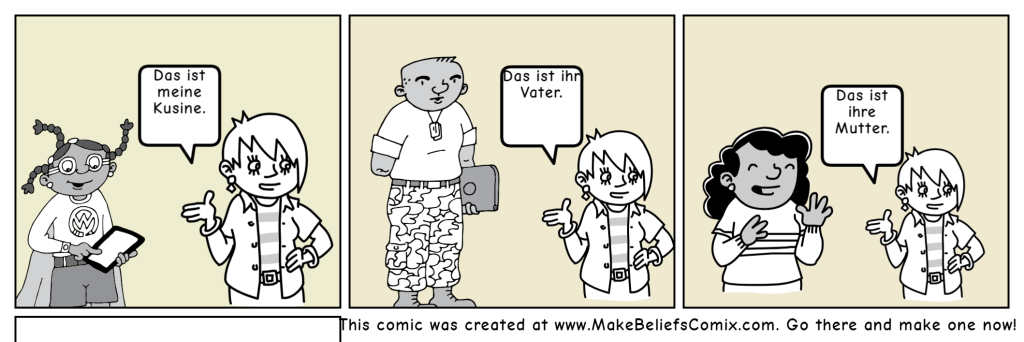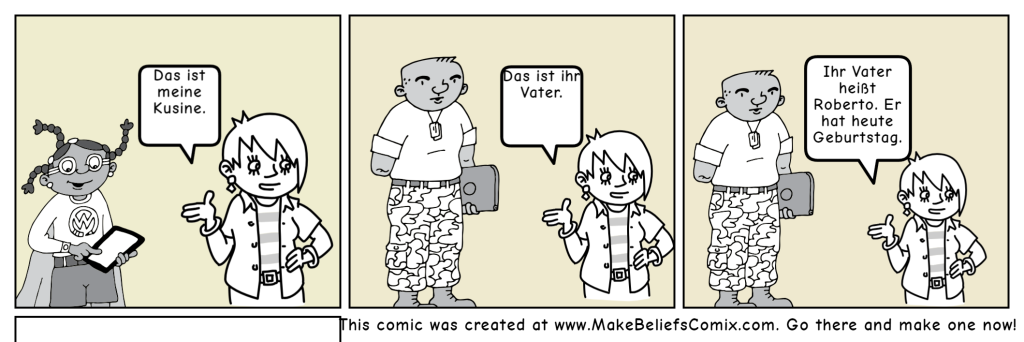DiA II (1020): 2.2 Meine Familienverhältnisse

Guten Tag!
Let’s warm up with our Tagesminiplausch und Wiederholung.
Wiederholung
In the previous lesson, you learned how to talk about your extended Familienkreis, how to say how your age compares with the age of your siblings, and how to ask others about their family. Let’s review.
Jetzt bist du dran!
Wie groß ist deine Familie? Answer the questions giving as many details as you want about the size of your family is, who belongs to your nuclear (Kernfamilie) and extended family (erweiterer Familienkreis), and any pet(s) you have. Then record yourself in your audio journal.
Lektionsüberblick
In this lesson, we will expand our ability to talk about families. In the end, you will be able to 1) talk about the familial relationships in your extended family, 2) talk about family relationships and 3) give biographical information (names, ages, birthdates) of extended family members.
Was weißt du schon?
| Noch nicht start klar?
Du kannst immer auf die gleiche 1010-Lektion zurückgreifen! |
Not confident about starting this lesson?
You can always review the same Lektion from 1010. |
1) Meine Familienverhältnisse (familial relationships)
Using your prior knowledge of German and what you know about cognates, see if you can figure out the meaning of these words.
Now see if you can match these full sentences with their translation.
Let’s practice!
Kleiner Hinweis
Two comments about the language of family relationships:
- These kind of formulations are the only way to talk about family relationships in German. Die Schwester meines Cousins means both the sister of my cousin and my cousin’s sister. There is a possessive “s” in German (like in my cousin’s sister), but it only exists in combination with a proper/given name. To use the previous family relationship as an example: If we already know that Manfred is your cousin, then you can say “Manfreds Schwester“. (Note that there is no apostrophe before the “s”.)
- You can also use mütterlicherseits (maternal) and väterlicherseits (paternal) to talk about family relationships. For example: Sofie can say either, “Die Mutter meiner Mutter heißt Gertrud” or “Meine Großmutter mütterlicherseits heißt Gertrud” (both in English: “The mother of my grandmother/My mother’s mother is called Gertrud” or “My maternal grandmother is called Getrud.”
Jetzt bist du dran!
2) Andere Familienverhältnisse
Large or small, families are a series of connections and relationships. Read and listen to the comic below, paying special attention to how the character introduces the mother and father.
 |
||
Let’s practice what you have read.
Jetzt bist du dran!
3) Talking about extended family
It’s important that we can share information about our family members. Read the comic below and learn why today is a special day.

Let’s practice sharing information about others by completing the questions below.
Jetzt bist du dran!
Zum Schluß
*As you conclude this lesson, don’t forget to check Canvas!*



